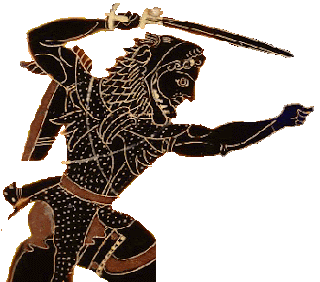22 Points To Be A Hero
1. Hero's mother is a royal virgin;
2. His father is a king, and
3. Often a near relative of his mother, but
4. The circumstances of his conception are unusual, and
5. He is also reputed to be the son of a god.
6. At birth an attempt is made, usually by his father or his maternal grand father to kill him, but
7. he is spirited away, and
8. Reared by foster -parents in a far country.
9. We are told nothing of his childhood, but
10. On reaching manhood he returns or goes to his future Kingdom.
11. After a victory over the king and/or a giant, dragon, or wild beast,
12. He marries a princess, often the daughter of his predecessor and
13. And becomes king.
14. For a time he reigns uneventfully and
15. Prescribes laws, but
16. Later he loses favor with the gods and/or his subjects, and
17. Is driven from the throne and city, after which
18. He meets with a mysterious death,
19. Often at the top of a hill,
20. His children, if any do not succeed him.
21. His body is not buried, but nevertheless
22. He has one or more holy sepulchres.
Hercules is a great example of a hero. "According to mythology, Hercules was the illegitimate son of Jupiter and Alcmene, the wisest and most beautiful of all mortal women. Juno was enraged at Jupiter for his infidelity with Alcmene, and even more so that he placed the infant Hercules at Hera's breast as she slept and allowed him to feed, which caused Hercules to be partially immortal, thus, allowing him to surpass all mortal men in strength, size and skill."
Another example would be Perseus. "Because of the obscurity of the name Perseus and the legendary character of its bearer, most etymologists pass it by, on the presumption that it might be pre-Greek; however, the name of Perseus’s native city was Greek and so were the names of his wife and relatives. There is some prospect that it descended into Greek from the Proto-Indo-European language. In that regard Robert Graves has espoused the only Greek derivation available. Perseus might be from the ancient Greek verb, "πέρθειν" (perthein), “to waste, ravage, sack, destroy”, some form of which appears in Homeric epithets. According to Carl Darling Buck (Comparative Grammar of Greek and Latin), the –eus suffix is typically used to form an agent noun, in this case from the aorist stem, pers-. Pers-eus therefore is a sacker of cities; that is, a soldier by occupation, a fitting name for the first Mycenaean warrior."



No comments:
Post a Comment